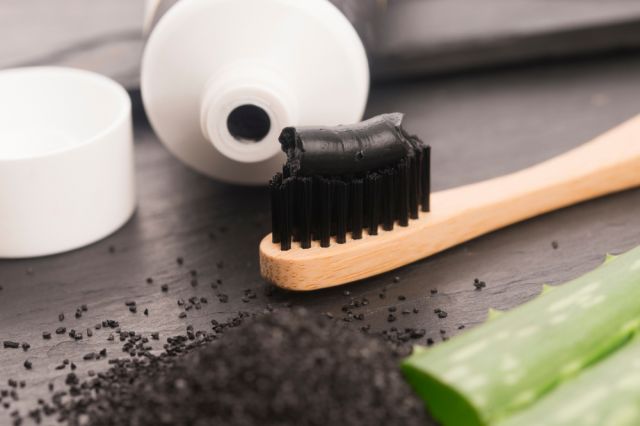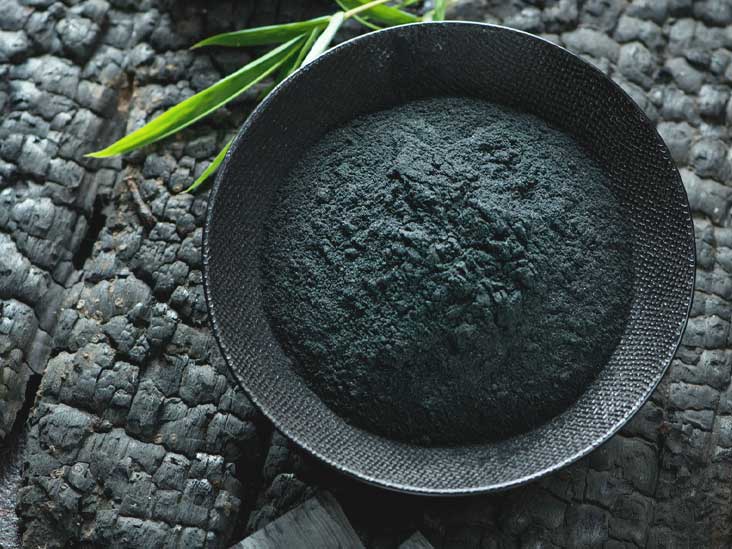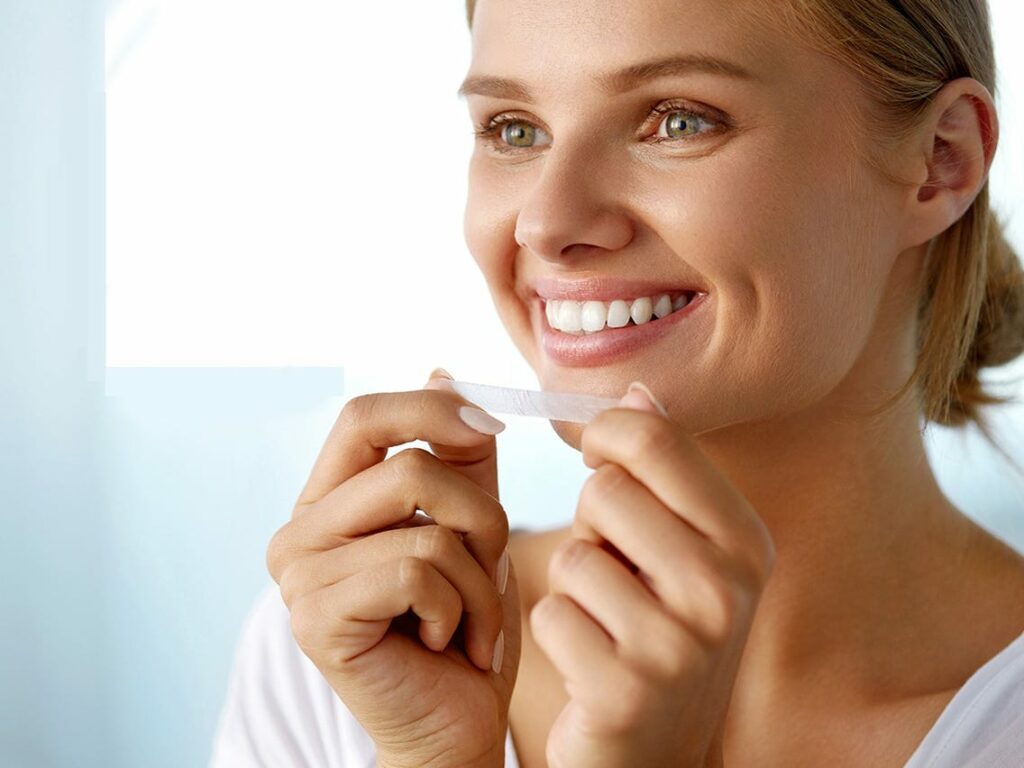Charcoal teeth whitening has become a trend in the wellness, digital, media, cosmetic industries, and almost any sector that involves appearing on screen or meeting with people at professional events.
People are very concerned about their teeth and want them to appear white when they smile. However, most of them don’t even know how using activated charcoal toothpaste could affect their teeth, and that’s because they do limited research about their claims.
This idea of having their teeth appearing white in front of others is so alluring that they would just use any toothpaste from literally anywhere with teeth whitening ingredients. They won’t even bother to know the actual facts about its claims from valid sources that determine whether it’s effective or not.
In this article, we will discuss everything you need to know about activated charcoal toothpaste.
So let’s dive in!
What Is Activated Charcoal?
Activated charcoal consists of natural substances like coconut shells, wood, bone char, peat, petroleum coke, coal, olive pits, sawdust, and many others. They all are ground together into powder form.
After that, they are activated by oxidising at extremely high temperatures. During this process, the internal structure and its colour turn completely black. And finally, it can be used as an ingredient for any toothpaste or other beauty products.
The reason why it is called ‘activated’ charcoal is that all of the substances are processed at a very hot temperature. So, when they are burned, they become activated.
Can Activated Charcoal Be Used For Other Purposes?
Yes, it is sometimes used by healthcare workers and even other people for various purposes. Some of them are the following:
- To treat overdose and poisoning – The charcoal absorbs the poison and prevents the stomach from absorbing it.
- To remove toxins inside your body – It is used as a remedy for removing toxins in your body. It also lets your body prevent absorbing any poisonous substance that may be residing inside your body.
- As a natural agent – It also helps to prevent gas, nullify hangover’s after-effects, and even reduce cholesterol.
- Teeth whitener – It can help clean stains from coffee, wine, and other similar drinks. It absorbs plaque that helps your teeth to appear white.
However, getting rid of unsightly stains on the enamel is generally done under dental professionals’ supervision and specialised tools.
Moreover, brushing your teeth with activated charcoal toothpaste may not be as effective as it claims to be since coal doesn’t stay on your teeth for a longer time. So, the whitening appearance of your teeth may wear-off after just a few hours.
Does Charcoal Toothpaste Work?
Well, it removes the stains at the surface of your teeth and doesn’t affect the stains underneath the enamel of the teeth. Plus, there is no evidence that it can bring your teeth’ natural whitening appearance or not.
Due to charcoal, the toothpaste is mildly abrasive and absorbs surface stains on your teeth caused by drinks to some degree.
However, it may have other benefits, but healthcare researchers don’t include the intrinsic whitening of the teeth in the list of its advantages.
Pros Of Using The Charcoal Toothpaste
Up till now, the reported benefits of this product are the following:
- Remove the stains from the surface of your teeth that are sightable.
- It improves the bad breath, but also highly depends on other factors.
- Prevent staining if used occasionally under the supervision of a specialist.
Cons Of Using The Charcoal Toothpaste
The observed harmful effects of this product are the following:
- It can make your teeth sensitive if used on a regular basis.
- May damage enamel due to its abrasiveness – teeth might appear yellow.
- Doesn’t bring back the natural whitening of your teeth.
- It can even stain your older dental restorations, like crowns, bridges, white fillings, etc.
- It doesn’t help you prevent tooth decay and its cavities when fluoride is missing from toothpaste ingredients.
- The safety and its other effects are still not well-researched and known.
What Else Works For Teeth Whitening?
Other than the whitening toothpaste, you can use the following products to make your teeth appear white:
- In-office whitening – Works best for people with yellow teeth only.
- Whitening strips – A gel is spread on the surface of your teeth along the strip containing carbamide peroxide or hydrogen peroxide, which penetrates the tooth’s enamel to remove stains.
- Dentist recommended or supervised at-home whitening – Solutions applied by a specialist are typically stronger, and they also make sure that your gums don’t get irritated by the whitening procedure.
The whitening technologies such as GLO Brilliant Deluxe Teeth Whitening Device, Crest 3D White Whitestrips Whitening Kit, etc., are also the most effective. However, professional whitening products are also available through dentists.
Natural Home Remedies
You can also look into the natural remedies you can make at your home to help your teeth appear white. It is safe, easy to make and apply. However, it might take a long time to show its results.
So, let’s look into these natural home-made remedies options:
- Brush your teeth with the mixture of hydrogen peroxide (2 teaspoons) and baking soda (1 teaspoon).
- Doing a 30 seconds mouthwash of apple cider vinegar by mixing it with two teaspoons of water can also help to make your teeth whiter.
- Rubbing citrus fruit’s peel such as lemon, orange, or banana peels can also make your teeth appear white to some degree.
Keep in mind that you should not use these remedies more than twice a week. As the excessive use of any of the remedies may damage your teeth instead of helping them. Plus, you should brush before and after drinking beverages or eating meals to lessen the stains on your teeth. It may even help to maintain the witness of your teeth for a longer time.
Key Takeaway
Here’s what we know about activated charcoal toothpaste so far:
- Too abrasive for everyday use – It can damage your teeth’s enamel.
- Make your teeth look even more yellow – As it damages calcified yellow tissue – the dentin of your teeth, also making it sensitive.
- Can not protect from cavities and decaying – If there is no fluoride, then your teeth might end up getting caught by cavities and increase tooth decay.
- May cause stain on older teeth – Charcoal particles could accumulate in the cracks and crevices of older teeth.
- Effect on dental restorations – There is a high chance that charcoal particles could build up between the dental restorations materials, damaging their outlines.
The charcoal toothpaste may help remove the surface stains off your teeth, but the effects of this product’s long-term use are still unknown due to limited studies.
However, there are lots of better options to try – practised by a specialist or at-home remedies. It is highly recommended that you do not overuse any of these as they may damage the surface of your teeth.
P.S: Consult a dentist and get the best option for whitening your teeth!




Recent Comments